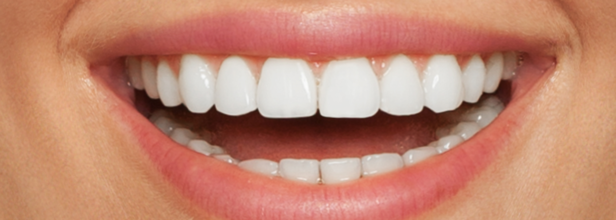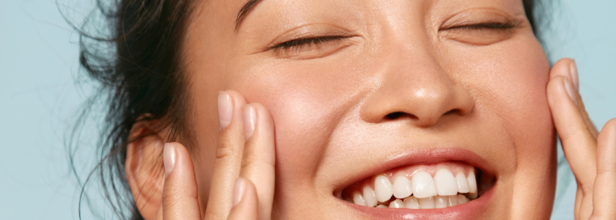
(Credit-Canva)
Psoriasis Patients May Benefit From Vitamin D, Study Suggests
Getting sunlight and vitamin D does a lot of good to human body. Many people express how they often feel low and unwell when they are confined in close quarters for a long time and the best example for this is the Covid-19 pandemic, this is all because they lack vitamin D. But an unexpected condition that may benefit from vitamin D is psoriasis.
Psoriasis is an autoimmune disease that causes dry and itchy patches on your skin. A study published in the Medicine suggests that if you don't have enough vitamin D, your body's defense system might act up, which could make psoriasis worse. Vitamin D is really important for keeping your bones strong and your body's defenses working well. It might also help your skin stay healthy. Scientists are looking into whether getting more vitamin D can help people who have psoriasis feel better.
Another study published by Skin Pharmacology Physiology suggests that vitamin D is very important for our skin. It controls how skin cells grow, mature, and die, and it keeps your skin's protective barrier strong. It also helps your skin's immune system. If you don't have enough vitamin D, you're more likely to get skin problems like psoriasis and eczema.
How Vitamin D Affect Skin Health?
Some people with psoriasis have low levels of vitamin D. This could be because they try to stay out of the sun, which is how your body makes vitamin D. It's also possible that having low vitamin D can make your body's defenses go into overdrive, leading to psoriasis. Vitamin D also affects skin cells called keratinocytes, and if you don't have enough vitamin D, these cells might grow too fast, causing the thick, scaly skin that psoriasis is known for.
Vitamin Deficiency: Who Is At Risk?
People with psoriasis often have low vitamin D levels, but it's not always clear why. It could be because they don't eat enough vitamin D-rich foods, don't get enough sunlight, or have certain health problems. Older people, people who are overweight, babies, and people with dark skin are more likely to have low vitamin D. If you think you might have low vitamin D, your doctor can do a blood test to check. Taking too much vitamin D can be harmful. It can cause you to lose your appetite, pee too much, have heart problems, and have too much calcium in your blood, which can lead to kidney stones. Always talk to your doctor before taking vitamin D supplements.
Right now, there's not a lot of proof that other vitamins or supplements can help with psoriasis. Some people believe that taking fish oil, which has omega-3 fatty acids, might help because it can reduce swelling. But there haven't been enough big studies to show if it really works. It's always best to talk to your doctor before trying any new vitamins or supplements for psoriasis

Credit: Canva
'Never Thought It Will Happen To Me': Ozempic Causes Osteoporosis In Woman
A 30-year-old woman recently revealed a shocking side effect of Ozempic that has left everyone worried. Taking to Instagram, Avery shared that after taking the popular weight loss drug for a year, she was diagnosed with osteopenia and osteoporosis, which causes the excessive loss of bone density. Her news has sparked a debate against the abuse of weight-loss drugs and their long-term effect on one's health.
Avery admitted to using Ozempic as part of her struggle with an eating disorder and getting the medication without a doctor's prescription. She said she deeply regrets using it and advised others to watch out. "I am in kind of a shock right now because I never thought this," she posted through her tearful message. "Ozempic can cause bone loss of density, and I never thought that this was going to happen to me because I was only taking it for a year. I have osteoporosis and osteopenia. Ozempic is very easy to get nowadays, and people all over are getting their hands on it. But don't do it. I messed up. Please learn from my mistake."
Weight Loss Drugs Linked To Low Bone Density
Clinical research has associated the use of GLP-1 receptor agonists, such as Ozempic, with bone density loss. A JAMA Network Open Study confirmed that patients taking liraglutide had lower bone density than those who did not. The participants—aged 18 to 65—were randomly split into four groups for one year: one that exercised and received a placebo, one that received just a placebo, a group that received Novo Nordisk's weight loss drug liraglutide and another group that received liraglutide and exercised. Liraglutide, like Semaglutide (Ozempic) is a GLP-1 angonist but less dense.
A trial of 195 adults with obesity found that glucagon-like peptide-1 (GLP-1) receptor agonists, a class of drugs used to treat diabetes, resulted in reduced hip and spine bone mineral density when used without exercise compared to a placebo or exercise alone, researchers said.
Does Ozempic Have Side Effects?
As reiterated by doctors and health care experts, Ozempic is a drug that is tasked to help diabetic patients manage their blood sugar levels and weight. However, recent research has shown its effectiveness in mitigating various addictions like alcohol and drugs by inhibiting hormones. But what people ignore are its side effects, which include:
Nausea is a frequent side effect, especially when starting Ozempic or increasing the dose, and vomiting may occur along with nausea.
Diarrhoea and abdominal discomfort also show up in people using Ozempic, but they generally resolve as your body adjusts.
Ozempic can reduce appetite but may also lead to unintended weight loss or reduced food intake, causing discomfort for some people.
There are certain less common, but serious side effects also, like Pancreatitis, or inflammation of the pancreas.
This drug may also cause severe kidney issues, particularly if dehydration occurs from side effects like vomiting or diarrhoea.

Credits: Canva
Can Drugs Regrow Teeth? Scientists Thing They Can
Japanese scientists are now testing a new drug that could possibly allow people with missing teeth to grow new ones. This could be a groundbreaking research which would offer hope for a natural alternative to dentures and implants.
So, What Really Is The Science Behind Tooth Regeneration?
Unlike reptiles and fish, who can regrow their teeth throughout their lives, human and most mammals are believed to grow only two sets of teeth. However, a research led by Katsu Takahashi, who is the head of oral surgery at the Medical Research Institute Kitano Hospital in Osaka, humans may also have dormant buds for a third set of teeth hidden beneath their gums.
Takahashi's team has therefore launched clinical trials at Kyoto University Hospital in October, administering an experimental drug which was designed to activate these dormant tooth buds. The researchers are now hoping that this treatment will restore natural teeth and eliminate the need for prosthetics, which are often costly and invasive.
How This Drug Works?
The drug targets a protein called USAG-1, which has been shown to suppress tooth growth. By blocking this protein, researchers believe they can trigger the development of new teeth. Studies on mice and ferrets have already demonstrated successful tooth regeneration, with lab images confirming the growth of new teeth in these animals.
A study published last year by Takahashi’s team confirmed that their "antibody treatment in mice is effective for tooth regeneration and can be a breakthrough in treating tooth anomalies in humans." The ongoing clinical trials will determine whether this success can be replicated in humans.
Who Could Actually Benefit From It?
As of now, the research is currently focusing on people with congenital tooth loss. This means people who have a hereditary condition that affects approximately .1% of people. These people are born missing six or more permanent teeth, which can make chewing difficult for them. It can also impact their confidence. Many in Japan wear face masks during adolescence to hide the gaps in their mouths, explained Takahashi.
"This drug could be a game-changer for them," he said. The team aims to make the drug available to children with this condition by 2030, offering a revolutionary solution to those who struggle with missing teeth from an early age.
What Others Are Doing About It?
There is indeed a global race to regrow teeth. The research has also sparked global interested with Angray Kang, a dentistry professor at Queen Mary University of London nothing that only one other team worldwide is pursuing a similar goal, using antibodies.
"I would say that the Takahashi group is leading the way," Kang told AFP, emphasizing that the approach is "exciting and worth pursuing." He noted that a similar antibody drug is already being used to treat osteoporosis, adding credibility to the concept of targeting USAG-1 for tooth regeneration.
However, experts caution that while animal studies have been promising, human trials may present unforeseen challenges. Chengfei Zhang, a clinical professor in endodontics at the University of Hong Kong, called Takahashi’s method "innovative and full of potential" but warned that "outcomes observed in animals do not always directly translate to humans."

Credits: Canva
What Are Skin Probiotics? Do They Really Work?
Beneath the surface of our skin is a thriving ecosystem of bacteria, fungi, and other microorganisms. This microbiome plays an important role that keeps our skin youthful, resilient, and protects us from harmful pathogens. Studies also show that a well-balanced microbiome can promote wound healing, defend against infections, and even counteract the damaging effects of UV rays.
There has been a growing awareness of the skin microbiome and so many skincare companies are now introducing 'probiotics' for skin.
How Effective Are These?
The idea of using bacteria to improve skin health is not new. It has been there from as early as 1992, when scientists experimented with applying bacteria to treat acne and seborrhea, which is a skin condition that causes itching and flaking. The skincare industry today offers a wide range of probiotic-infused products, from cleansers and serums to moisturizers. All of them promise to rebalance the skin microbiome.
However, a closer look also reveals that many of these products do not actually contain live bacteria. Instead they rely on prebiotics, which are the nutrients that encourage the growth of beneficial bacteria, or postbiotics, which are the byproducts of bacteria that may benefit the skin.
The Challenge of Keeping Bacteria Alive
Why don’t most skincare products contain live probiotics? The answer lies in the difficulty of keeping bacteria alive throughout the manufacturing and storage process. Even if live bacteria make it into a product, there’s no guarantee they will survive long enough to take effect on the skin, where they must compete with millions of existing microbes.
Can Live Bacteria Treat Skin Conditions?
Despite the challenges, some researchers are testing whether live bacteria can treat specific skin conditions like eczema and acne. One promising approach focuses on the relationship between Staphylococcus aureus—a bacterium commonly found on the skin of eczema patients—and beneficial bacteria like Staphylococcus hominis, which can naturally fight off harmful microbes.
A 2021 clinical trial tested a cream containing live S. hominis on eczema patients. After one week, participants saw reduced S. aureus colonization and improvements in redness and itching. A larger phase two trial is now underway to evaluate long-term effectiveness.
Similarly, in a 2018 study, scientists performed microbiome transplants on eczema patients using Roseomonas mucosa bacteria from healthy skin. After 16 weeks, symptoms improved by over 50%.
Can Probiotics Prevent Skin Aging and Cancer?
Beyond treating skin conditions, probiotics may have broader benefits. In animal studies, a strain of Staphylococcus epidermidis was found to produce a compound that protects against UV-induced skin cancer. While human trials are needed, these findings suggest that probiotics could one day play a role in skin cancer prevention.
Some studies also suggest that prebiotics and postbiotics may improve overall skin health. Ingredients like inulin, found in some skincare products, create a favorable environment for beneficial microbes. Additionally, bacteria found in fermented dairy products may help boost ceramide production, which strengthens the skin barrier and improves hydration.
© 2024 Bennett, Coleman & Company Limited




